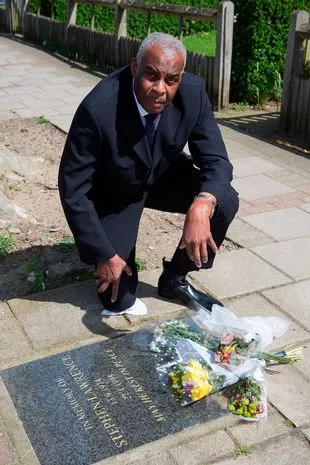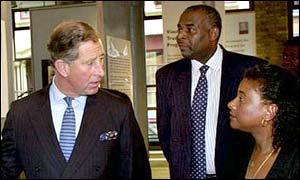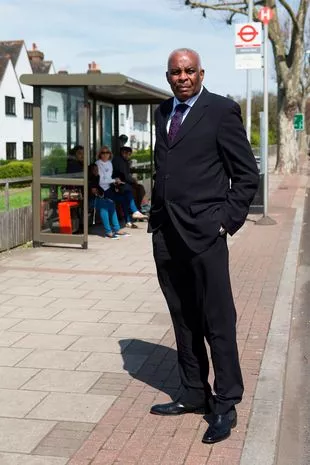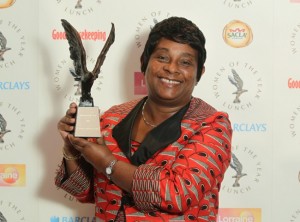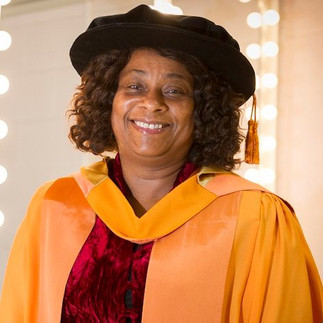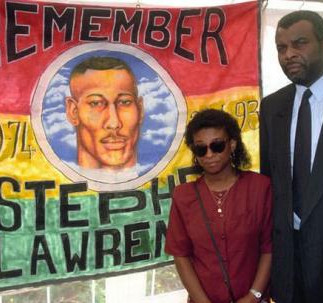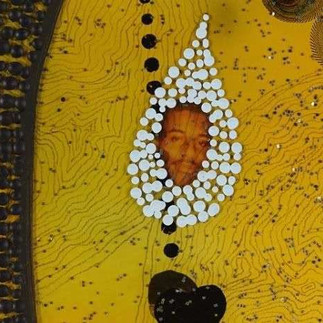May 19th: Today’s Feature
- webbworks333
- May 18, 2025
- 5 min read
May
Doreen Delceita Lawrence, also known as Baroness Lawrence of Clarendon, OBE, was born in 1952 and is a prominent British Jamaican activist. She gained recognition for her advocacy work following the tragic murder of her son, Stephen Lawrence, a black British teenager who fell victim to a racist attack in South East London in 1993. In response to this devastating event, she dedicated herself to promoting reforms within the police service and established the Stephen Lawrence Charitable Trust to support young people from underprivileged backgrounds.

In recognition of her tireless efforts and significant contributions to community relations, Doreen Lawrence was appointed to the Order of the British Empire in 2003. Her commitment to creating a more inclusive society where individuals can thrive regardless of their gender, race, sexuality, religion, disability, or background has been unwavering. This dedication led to her being granted a life peerage in 2013, further solidifying her position as a respected figure in the fight against racism and injustice. Most notably, on the inaugural national Stephen Lawrence Day in April 2019, she reflected on her 26 years of advocacy work, emphasising her enduring commitment to building a society where everyone has the opportunity to live their best life.
Early & Personal Life
Lawrence, a native of Clarendon, Jamaica, was born in 1952 and later relocated to England at the tender age of nine. After settling in south-east London, she pursued her education and eventually found employment in the banking sector.
In 1972, she tied the knot with Neville Lawrence, and their union blessed them with three children: Stephen, born on September 13, 1974, tragically murdered on April 22, 1993; Stuart, born in 1977; and Georgina, born in 1982. Unfortunately, the couple's relationship came to an end in 1999 when they decided to part ways through a divorce.
Murder of Stephen Lawrence
Doreen and Neville Lawrence, following the tragic murder of their son Stephen in 1993, expressed their dissatisfaction with the Metropolitan Police investigation, alleging a lack of professionalism and pointing out incompetence and racism as significant flaws. Their persistent efforts to seek justice and the widespread support they garnered from the community, media, and political figures eventually led to the establishment of a comprehensive judicial inquiry in 1999. Spearheaded by Jack Straw, the Home Secretary at the time, the inquiry, chaired by Sir William MacPherson, aimed to thoroughly examine the circumstances surrounding Stephen Lawrence's untimely death. The inquiry received immense attention from the media, both nationally and internationally, and its conclusion that the Metropolitan Police was "institutionally racist" shed light on one of the primary reasons behind their failure to solve the case.
Public Life
Following the conclusion of the investigation, Baroness Lawrence persisted in her efforts to seek justice for her son and other victims of racially motivated crimes. She dedicated herself to advocating for further improvements within the police force to ensure better protection for minority communities. In recognition of her tireless work, Lawrence was honoured with the Order of the British Empire (OBE) in 2003 for her contributions to fostering positive community relations.
Additionally, Baroness Lawrence established the Stephen Lawrence Charitable Trust to uphold a constructive community legacy in memory of her son. She actively participates in various panels within the Home Office and law enforcement agencies, while also serving on the board and council of Liberty, a prominent human rights organisation. Furthermore, Lawrence serves as a patron for Stop Hate UK, a charity dedicated to combating hate crimes.
Over the years, she has collaborated with esteemed institutions like the Royal Institute of British Architects to create initiatives such as the Stephen Lawrence Prize, which recognises and supports emerging architects. Lawrence's commitment to social justice was further demonstrated when she assumed the role of race relations advisor to the Labour Party in April 2020, solidifying her ongoing dedication to promoting equality and inclusivity.
Recognition
Baroness Lawrence participated in the opening ceremony of the 2012 Summer Olympics on 27 July 2012, where she had the honour of holding the Olympic flag alongside seven other individuals. This was a significant moment in her career, showcasing her involvement in a global event that brought together athletes and spectators from around the world. The ceremony was a grand spectacle that marked the beginning of the prestigious sporting event, and Lawrence's role in it highlighted her presence on an international stage.
Over the years, Lawrence has received several accolades and awards for her outstanding contributions and achievements. In October 2012, she was presented with a Lifetime Achievement Award at the 14th Pride of Britain Awards, recognising her dedication and impact in various fields. Additionally, in April 2014, Baroness Lawrence was named as Britain's most influential woman in the BBC Radio 4's Woman's Hour Power List 2014, further solidifying her reputation as a prominent figure in British society.
Her work with the Stephen Lawrence Charitable Trust was also acknowledged when she received the Grassroot Diplomat Initiative Award in May 2014 under the Social Driver category. Lawrence's commitment to social causes and her significant accomplishments have earned her respect and admiration, leading to her elevation to the peerage as Baroness Lawrence of Clarendon in September 2013.
Honours & Legacy
Chris Ofili's painting No Woman No Cry, created in 1998, is a poignant and powerful portrayal of Doreen Lawrence's grief and pain. The painting captures the essence of her sorrow as she is depicted crying, with each tear containing an image of her beloved son Stephen. This artwork was a significant part of Ofili's Turner Prize exhibition, showcasing his exceptional talent and ability to convey deep emotions through his art. Today, this masterpiece finds its place in the prestigious Tate Gallery, where it continues to captivate and move viewers with its profound message.
In 1999, Doreen Lawrence's story reached a wider audience when actress Marianne Jean-Baptiste portrayed her in the ITV docudrama titled The Murder of Stephen Lawrence. This powerful portrayal shed light on the tragic events surrounding Stephen's murder and the subsequent fight for justice led by Doreen Lawrence. The docudrama served as a platform to raise awareness about the case and the systemic issues it exposed, leaving a lasting impact on society.
Furthermore, in 2000, Doreen Lawrence's resilience and strength were celebrated through a double portrait exhibited at the Stephen Lawrence Gallery in Greenwich, London. This exhibition not only honoured her as a mother who had endured unimaginable pain but also recognised her as a symbol of hope and determination in the face of adversity. The double portrait served as a testament to her unwavering commitment to seeking justice for her son and inspiring others to fight against injustice.
Doreen Lawrence's influence and impact extended beyond the realm of visual arts and film. In 2012, she was invited as a guest subject on BBC Radio 4's Desert Island Discs, a renowned program where notable individuals share the music that holds personal significance to them. This invitation not only highlighted her resilience and strength but also provided a platform for her to further share her story and the importance of fighting for justice and equality.
The profound impact of Doreen Lawrence's advocacy and the significance of her son's tragic story resonated with many artists. Sons of Kemet, a British jazz group, dedicated their album Your Queen Is a Reptile to Lawrence, among others. This dedication symbolised the recognition and admiration she received from the artistic community, further amplifying her voice and the ongoing fight against racial injustice.
Doreen Lawrence's remarkable odyssey, starting from the poignant depiction in Chris Ofili's masterpiece to her involvement in cinematic productions, art showcases, and radio broadcasts, epitomises her resolute commitment to pursue justice for her beloved son and ignite transformation. Her narrative serves as a beacon of hope, igniting passion within communities as they strive for equity and fairness in their pursuit of justice.






